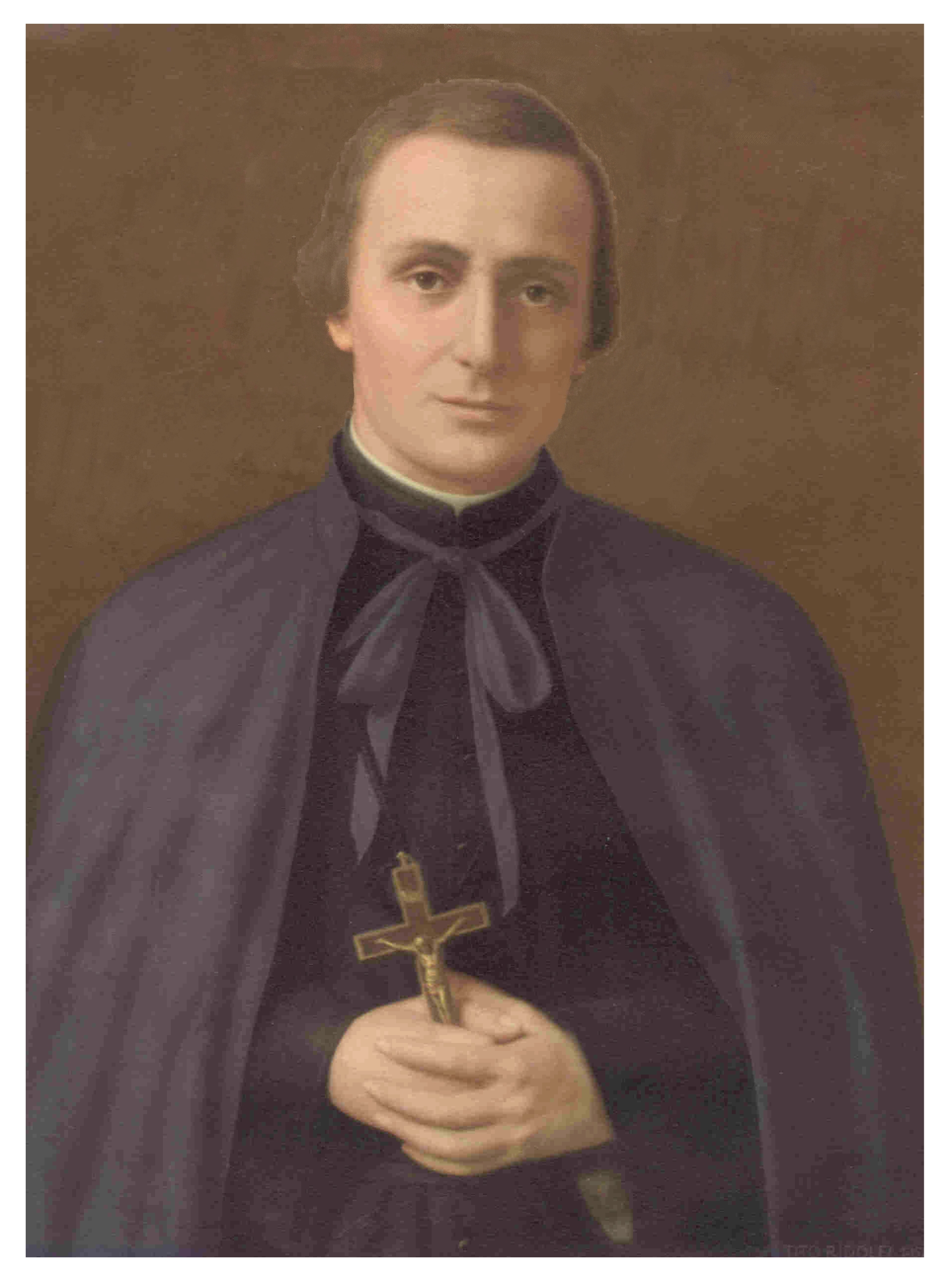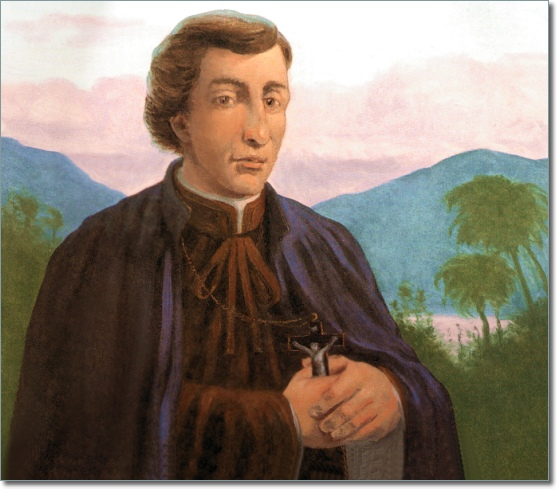Anyone who has worked in loneliness, with great adaptation required, and with little apparent success, will find a kindred spirit in Peter Chanel.
Pierre Louis Marie Chanel was born on July 12, 1803 in La Potière near Cuet in the area of Belley, France.
He was ordained priest along with 24 others on 15 July 1827. From an early age Chanel had been thinking about going on the foreign missions and his intention was strengthened by the letters that arrived from a missionary in India.
The following year Chanel applied for permission to go to the missions. His application was not accepted and instead he was appointed for the next three years as parish priest of the run down parish of Crozet. This parish was in dire straits and situated in a seamy district. By the simple method of showing great devotion to the sick, Peter revitalized and reinvigorated the faith of the community surrounding the parish.
Seeming to take one step closer to his ambition of becoming a missionary, in 1831, Peter joined the newly forming Society of Mary (Marists). Instead of being selected as a missionary, however, the Marists used his talents as the spiritual director at the Seminary of Belley, where he patiently and obediently worked for five years.
Finally, he was given permission to be a missionary and traveled to Western Oceania. The bishop accompanying the missionaries left Peter and another Marist brother on Futuna Island in the New Hebrides, promising to return in six months. The interval lasted five years.
The group was initially well received by the island’s king, Niuliki, who had only recently forbidden cannibalism. Meanwhile Peter struggled with this new language and mastered it, making the difficult adjustment to life with whalers, traders and warring natives. Despite little apparent success and severe want, Peter maintained a serene and gentle spirit and endless patience and courage. A few natives had been baptized, a few more were being instructed.
Once the missionaries learned the local language and began preaching directly to the people, the king grew restive. He believed that Christianity would take away his prerogatives as high priest and king. When the king’s son, Meitala, sought to be baptized, the king sent a favored warrior, his son-in-law, Musumusu to “do whatever was necessary” to resolve the problem.
Musumusu initially went to Meitala and the two fought. Musumusu, injured in the fracas went to Chanel feigning need of medical attention. While Chanel tended him a group of others ransacked his house. Musumusu took an axe and clubbed Chanel on the head. His body was cut to pieces by the natives.
Over a year later, for it took that long for news to travel of Peter’s murder and arrangements to be made, a chief named Maligi, who had not agreed to Chanel’s murder, agreed to disinter Fr. Chanel’s body, and brought it to the L’Allier, a French naval corvette, sent to retrieve Peter’s body, wrapped in several local mats. Eventually, with proper and improved care taken of the remains, entrusted from trustworthy hand to trustworthy hand, Peter’s remains were returned to the motherhouse of the Society of Mary in Lyon, France, June 1, 1850.
Within two years after Peter’s death, some sources say five months, the whole island of Futuna became Catholic and has remained so. Musumusu himself converted, and as he lay dying, expressed the desire that he be buried outside the church at Poi so that those who came to revere Peter Chanel in the Church would walk over his grave to get to it. As a kind of penitence a special action song and dance, known as the “eke”, was created by the people of Futuna shortly after Chanel’s death. The dance is still performed in Tonga. Peter Chanel’s remains were returned to Futuna in 1977.
Prayer
St Peter Chanel, you left your homeland to proclaim Jesus, Savior of the world, to the peoples of Oceania. Guided by the spirit of God, who is the strength of the gentle, you bore witness to love, even laying down your life. Grant that like you, we may live our daily life in peace, joy, and in love. May your prayer and example call forth from our midst many workers for the Gospel so that God’s kingdom may reach to the ends of the earth. Amen.
“He loves us. He does what he teaches. He forgives his enemies. His teaching is good.”
– one of Saint Peter’s catechumens, explaining why he believed Peter’s teachings
“It does not matter whether or not I am killed; the religion has taken root on the island; it will not be destroyed by my death, since it comes not from men but from God.”
-St. Peter Chanel
Love,
Matthew


